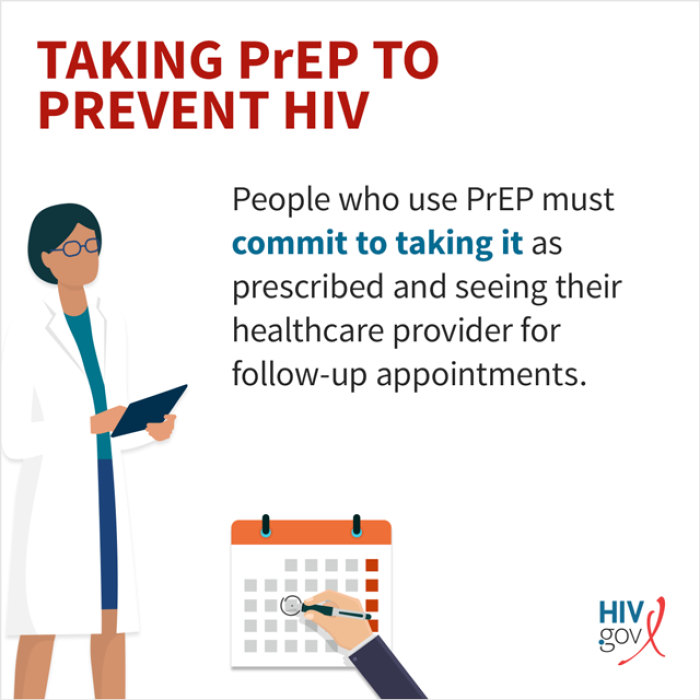
PrEP, or pre-exposure prophylaxis, is medicine people at risk for HIV take to prevent getting HIV from sex or injection drug use. PrEP can stop HIV from taking hold and spreading throughout your body.
Currently, there are two FDA-approved daily oral medications for PrEP. A long-acting injectable form of PrEP has also been approved by the FDA.
PrEP is highly effective at preventing HIV when taken as indicated.
PrEP reduces the risk of getting HIV from sex by about 99% when taken as prescribed. Among people who inject drugs, it reduces the risk by at least 74% when taken as prescribed. PrEP is much less effective when it isn't taken consistently.
PrEP may benefit you if you test negative for HIV and any of the following apply to you:
Or
Or
You may choose to take PrEP even if the behaviors above don’t apply to you. Talk to your health care provider.
If you have a partner with HIV and are considering getting pregnant, talk to your doctor about PrEP. PrEP may be an option to help protect you and your baby from getting HIV while you try to get pregnant, during pregnancy, or while breastfeeding.
PrEP can be pills or shots.
There are two pills approved for daily use as PrEP. They are combinations of two anti-HIV drugs in a single pill:
A long-acting injectable form of PrEP has also been approved by the FDA:
PrEP is safe. No significant health effects have been seen in people who are HIV-negative and have taken PrEP for up to 5 years.
Some people taking PrEP may have side effects, like nausea, diarrhea, headache, fatigue, and stomach pain. These side effects are usually not serious and go away over time. If you are taking PrEP, tell your health care provider if you have any side effect that bothers you or that does not go away.
And be aware: PrEP protects you against HIV but not against other sexually transmitted infections (STIs) or other types of infections. Combining PrEP with condoms will reduce your risk of getting other STIs.
If you think PrEP may be right for you, visit your doctor or health care provider. PrEP is only available by prescription. Any health care provider licensed to write prescriptions can prescribe PrEP; specialization in infectious diseases or HIV medicine is not required.
Because PrEP is for people who are HIV-negative, you’ll have to get an HIV test before starting PrEP and you may need to get other tests to make sure it’s safe for you to use PrEP.
If you take daily oral PrEP, you’ll need to see a health care provider every 3 months for repeat HIV tests, prescription refills, and follow-up. If you use injectable PrEP, you’ll need to see a healthcare provider every two months for an HIV test and the injections.